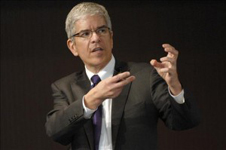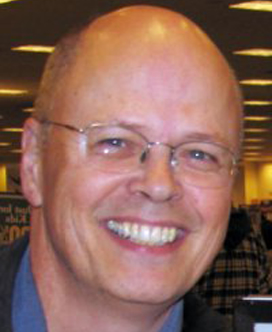    |
||
 |
Life Ascendant: |
Purchase Tickets Season Tickets for this event are available at 503-819-8365 or online here! |
| We are in the process of making a fundamental Paradigm Shift in our understanding of biological evolution. At the core is the shift from a perspective defined by Malthusian Scarcity to a new perspective based on the evidence of life's progressive innovation generating an Emergent Abundance. | ||
Terry Bristol Terry Bristol served as President of the Columbia Willamette Chapter of Sigma Xi (Research Society of America) for several years. He has a number of both scientific and philosophical publications and has made numerous conference presentations. He is an active member of the Philosophy of Science Association, The History of Science Society, the Society for the History of Technology, the Forum on Philosophy, Engineering and Technology, Sigma Xi,The American Philosophical Association, the American Physical Society, and the AAAS.
|
We are in the midst of a fundamental transition to a post-Darwinian understanding of biological evolution. The 20th century’s neo-Darwinian Synthesis is unable to make sense of the historical, ecological and genetic research results of the last fifty years. For instance, the first 80 percent of the history of life is completely non-Darwinian with single cell organisms developing and sharing their new technologies – by lateral gene transfer. However, the numerous empirical demonstrations of the inadequacies of the Darwinian tradition don’t automatically generate a new superseding understanding. What is needed, as Thomas Kuhn argued in his famous book, The Structure of Scientific Revolutions, is a Paradigm Shift – a conceptually discontinuous revolution – to a new way of understanding both the old established and more recent research results. |
|